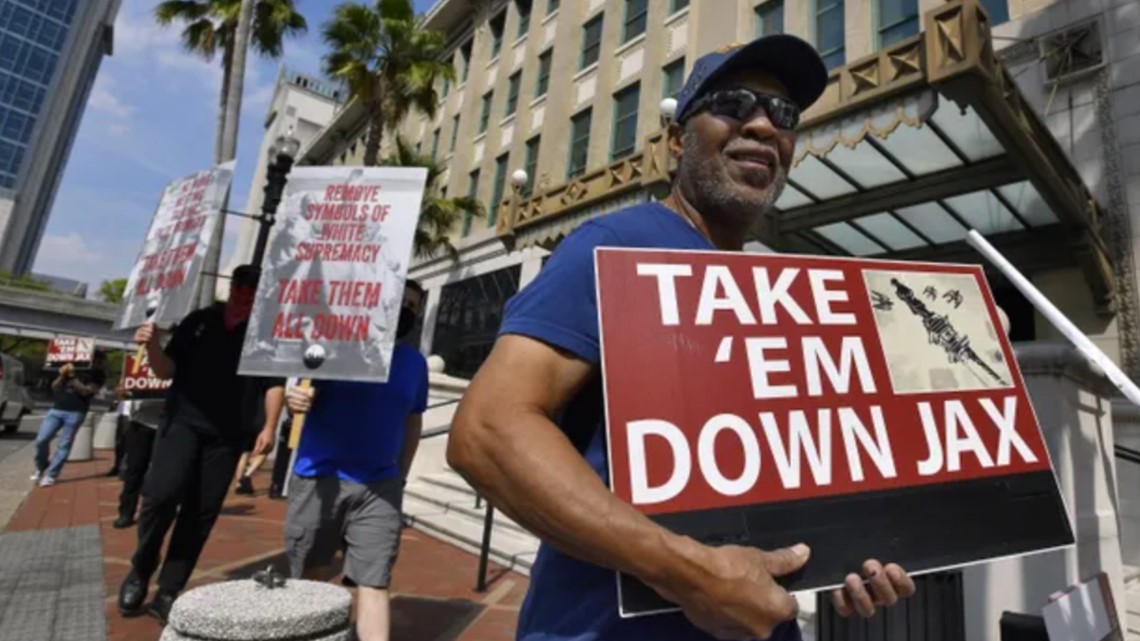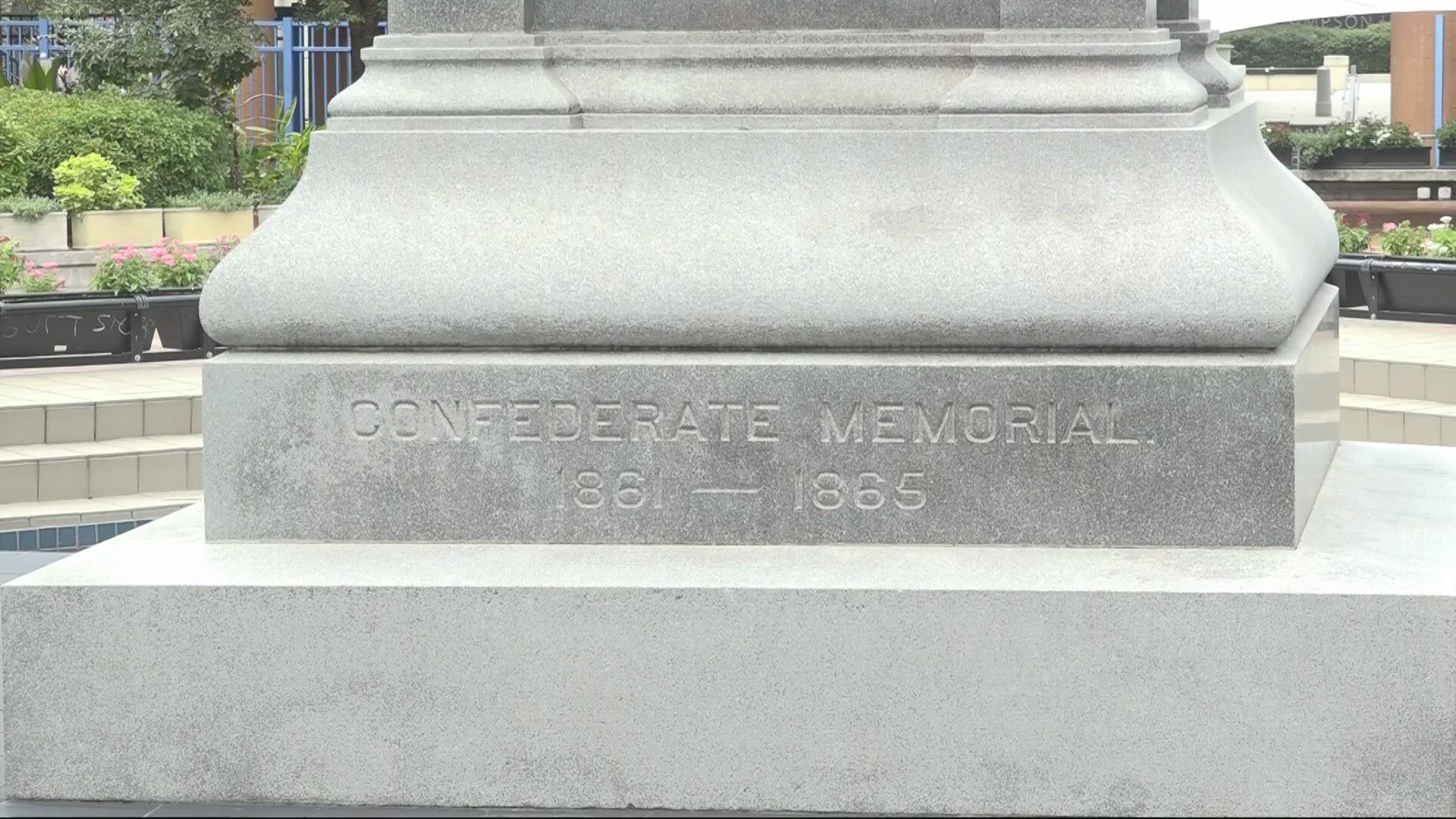JACKSONVILLE, Fla. — The last remaining piece of a 125-year-old Confederate monument in the heart of downtown Jacksonville was removed unobtrusively from James Weldon Johnson Park across the street from the front entrance of Jacksonville City Hall.
The tall obelisk was taken down nearly three years after the June 9, 2020, removal of the bronze statue of a Confederate soldier at the top of the monument. The solider statue was removed amid predawn darkness.
Mayor Lenny Curry ordered the statue's removal. At that time, Curry pledged to a crowd of peaceful protesters that he would order the removal of all remaining public Confederate monuments throughout the city.
Curry's stance has been that city-owned property should not be the site of a monument that divides the community and represents racial hatred to some residents.
Neither Curry nor other city leaders could be reached immediately Sunday for comment regarding the removal of the obelisk in James Weldon Johnson Park. The obelisk had "Confederate Memorial 1861-1865" etched into the base of it.
A city sign hanging on the chainlink fence surrounding the obelisk site stated work was underway to renovate James Weldon Johnson Park, Construction was projected to be completed this summer, according to the sign.
Details were unavailable Sunday on whether another monument, historic marker or possibly some type of artwork might replace the obelisk.
Last August, Friends of James Weldon Johnson Park, the nonprofit that manages the historic park at 135 W. Monroe St., approved a three-year strategic plan that calls for redesigning the park.
Two years ago, Jacksonville City Council renamed then-Hemming Park as James Weldon Johnson Park in honor of the Jacksonville civil rights leader who also was a poet, educator, diplomat and attorney.
Johnson and his brother composed "Lift Every Voice and Sing," which became known as the Black national anthem and had its first performance on Feb. 12, 1900, when 500 Stanton School students in Jacksonville performed it on Abraham Lincoln's birthday.
Born in 1871, Johnson served as a principal at Stanton School and later became a leader in the NAACP. President Theodore Roosevelt appointed him as the nation's consul to Venezuela and Nicaragua. He was the first African-American member of the Florida Bar. He was a key figure in the Harlem Renaissance movement.
Take 'Em Down Jax and the Northside Coalition as well as other community organizations plus individual church and civic leaders — both Black and white — routinely demonstrate peacefully to remind Curry of his promise to remove all Confederate monuments remaining on public property in the city.


Still standing and just as controversial, however, is the Confederate monument in Springfield Park.
City Council in another 2020 name change intended to separate Jacksonville from Confederate iconography, unanimously approved a bill rechristening Confederate Park as Springfield Park.
Renaming it Springfield Park, however, hasn't ended the outcry over the park's Confederate linage.

